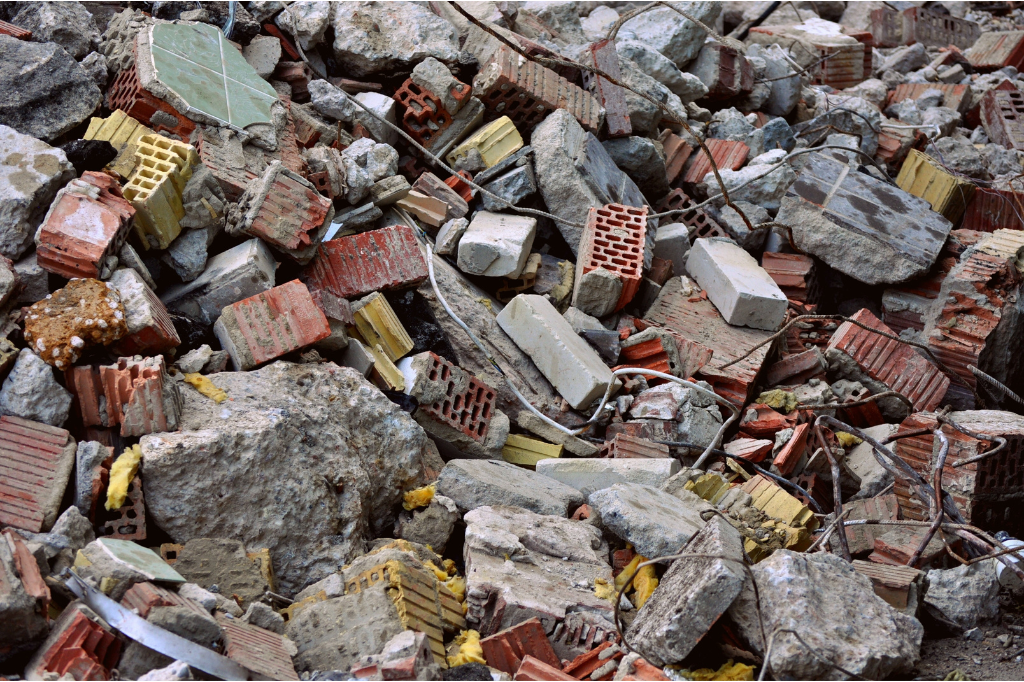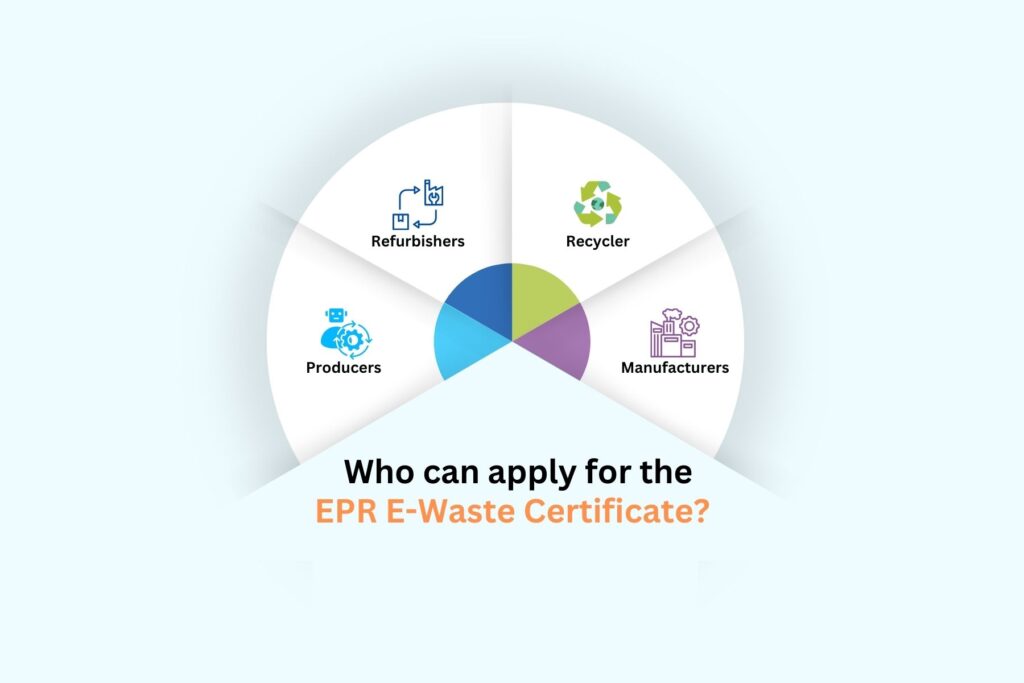
1. What is EPR Certificate?
“Extended producer responsibility” means responsibility of a producer to manage
construction and demolition waste and meet recycling targets as per Schedule-I to
ensure its environmentally sound management as per Construction and Demolition
Waste Management Rules, 2024.
2. What is the definition of Producer, Recycler, Construction & Construction
& demolition waste as per the rules?
a) “Construction” means the process of erecting, altering, repairing, or
remodeling of a structure, building, infrastructure and utility projects
like, residential and office complexes, road, highway, industrial
complexes, airport, port, harbor, laying of pipeline for water,
wastewater, gas, crude oil, optical fiber cable, electric cable, telecom
cable, and such other projects.
b) “Construction and demolition waste” means the waste generated due
to construction, demolition, re-modeling, repair, maintenance
activities, and comprises of soil, sand and gravel, bricks and masonry,
concrete, metal, wood, plastic, and such other items.
c) “Producer” means a waste generator registered on the portal for a
building or building complex project having built-up area of 20000
square meters and above.
d) “Recycler” means an entity registered on the portal, and engaged in
recovery of reusable material from construction and demolition waste
through on-site or offsite processing for manufacturing of value added
products or otherwise.
2) These rules apply to whom?
Coverage.- (1) The extended producer responsibility obligation shall apply on all
producers.
(2) Registration. – The extended producer responsibility framework shall be
implemented and monitored through an online portal, and following entities shall
register on the portal, namely:-
a) Producer;
b) Operator of Intermediate Waste Storage Facility; and
c) Recycler.
(3) The extended producer responsibility targets for recycling are specified under
Schedule I, and producer shall be solely responsible to meet the obligation.
(4) In case of in-situ recycling, producer shall register in both categories and fulfil the
responsibilities of waste generator as well as recycler for the corresponding
quantities of waste.
(5) No entity referred in sub-rule (3) shall carry out business without registration.
(6) The entities registered under sub-rule (3) shall not deal with any unregistered
entity.
3. What are the responsibilities of Waste Generator?
Responsibilities of the Waste Generator – The waste generators shall be
responsible for undertaking following measures for waste management:
a) Collect and segregate waste to facilitate reuse and recycling into separate
material streams viz. concrete, soil, bricks, steel, wood, plastics etc.;
b) Store the waste and take measures for its recycling, either in-situ or
channelize for off-site processing;
c) Transport entire (100%) waste to collection points or intermediate waste
storage facility or hand over waste to an authorized agency or recycler, as
appropriate;
d) Take measures to prevent air pollution, littering of waste and avoid public
nuisance during collection, segregation, storage of waste;
e) Comply with the orders and directions of the implementing and enforcement
agencies.
4. What are the responsibilities of Producer?

Responsibilities of Producers. – The waste generators, categorised as producers,
shall be additionally responsible to undertake the following measures for waste
management:
a) register on the portal, and comply with all obligations given under these rules;
b) follow standard operating procedures, and measures prescribed by Central or
State Pollution Control Board or Pollution Control Committees and
implementing agency for environmentally sound management of waste;
c) Undertake demolition in compliance with ‘IS 4130: Safety code for demolition
of buildings’ or any other standard operating procedures and measures put in
place by the implementing or enforcement agency for demolition;
d) Prepare an integrated waste management plan, with prior approval of
implementing agency, of all construction activities in a single jurisdictional
area.
5. What will be the Validity of the Certificate?
The validity of the extended producer responsibility certificate shall be three
years from the end of the financial year in which it is generated, and the
expired certificate shall automatically cease to exist after its validity period,
unless transacted earlier.

